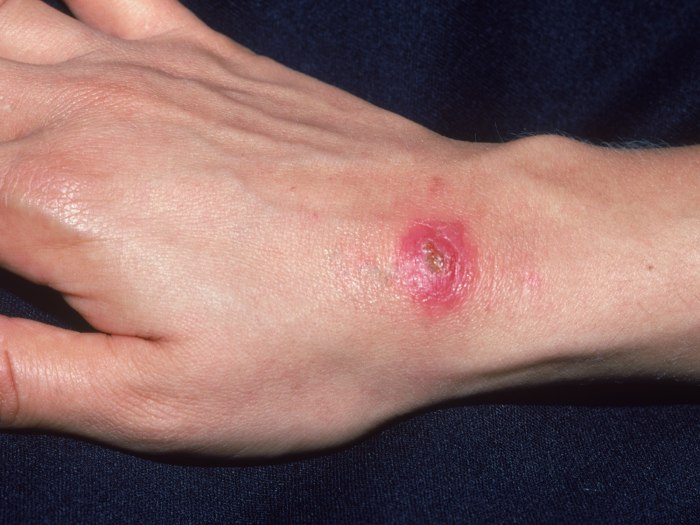Published on
Differential Diagnosis
- Mycobacterium chelonae infection
- Mycobacterium marinum infection
- Cutaneous phaeohyphomycosis infection
- Foreign body granuloma

Diagnosis
This is Myobacterium marinum infection. M marinum is an atypical mycobacterial skin infection contracted from contaminated fish tanks, swimming pools, lake water and salt water. Minor trauma is a predisposing factor.
Men are affected more commonly than women.
Learnings/What to Look for
- The typical skin lesion consists of a pustule or nodule and develops 2–3 weeks after exposure
- Nodules may ulcerate, suppurate, and spread via lymphangitic spread (about 25% of cases)
- In more severe infections, deeper manifestations such as tenosynovitis, arthritis, bursitis, or osteomyelitis may be seen
- In immunosuppressed patients, disease can disseminate to the lungs or other systems; bacteremia is rare
Pearls for Urgent Care Management
- Infection is usually mild and self-limited, with lesions healing over 1 to 2 years if left untreated
- Treatments found to expedite healing include minocycline, clarithromycin, doxycycline, and trimethoprim-sulfamethoxazole
- While M marinum is naturally multidrug-resistant, drug resistance varies. As such, combination therapy may be required
- Cryotherapy, x-ray therapy, electrodesiccation, photodynamic therapy, and local hyperthermic therapy have also been reported to be effective
Acknowledgment: Image and case presented by VisualDx (www.VisualDx.com/jucm).
A 43-Year-Old Woman with a New Ulcer on One Hand
1 2
